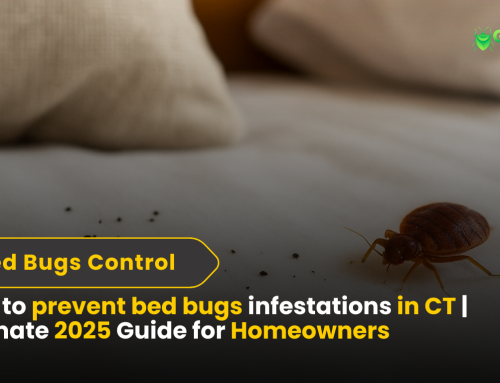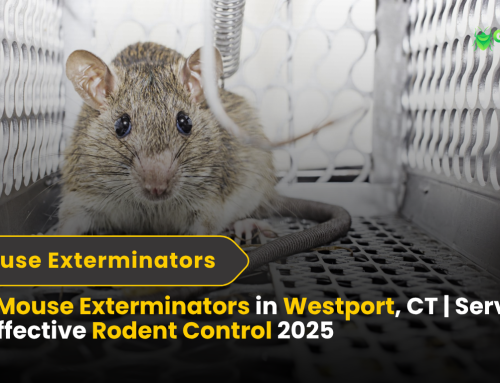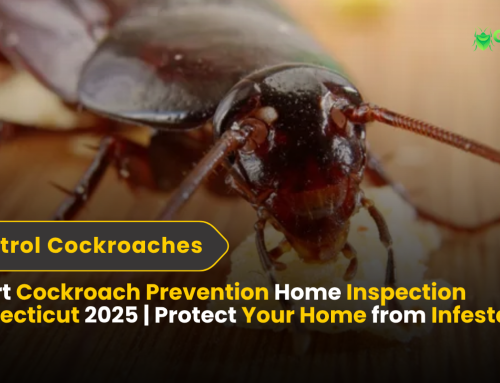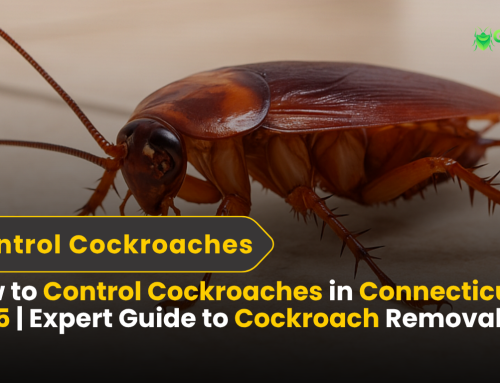Organic Wasp Control in CT | Eco-Friendly 2025 Options
Dealing with wasps around your Connecticut home can be stressful and potentially dangerous, but you don’t need harsh chemicals to stay safe. Organic wasp control in CT methods provide effective solutions for keeping these stinging pests away while protecting your family, pets, and the environment. These methods focus on natural repellents, DIY traps, and professional eco-friendly services, making it possible to maintain a safe outdoor space. In this guide, we’ll cover everything you need to know about safe, chemical-free wasp control in Connecticut.
Why Choose Organic Wasp Control in CT ?
Organic methods are not only safe but also eco-friendly and highly effective when done correctly. Unlike chemical sprays, natural solutions won’t harm pollinators, pets, or children, making them ideal for households with sensitive members.
Benefits of organic methods include:
- Non-toxic alternatives: Perfect for homes with kids and pets.
- Environmentally responsible pest management: Reduces chemical impact on your garden and surroundings.
- Long-term prevention: Organic approaches often discourage future infestations without repeated chemical exposure.
Choosing organic methods also aligns with a growing trend of sustainable home care, helping homeowners create safer and healthier outdoor spaces. Using these methods proactively can prevent wasps from nesting near your home and reduce the risk of painful stings.
Common Wasp Species in Connecticut
Understanding the type of wasps in your area helps target the right control strategies. Connecticut is home to several wasp species, each with distinct behaviors.
- Yellow Jackets – Aggressive scavengers that are often attracted to sweet foods and outdoor gatherings. They can become a nuisance at picnics or near trash bins.
- Paper Wasps – These wasps build umbrella-shaped nests and are usually less aggressive but still capable of stinging when threatened. They prefer sheltered areas like eaves or shed corners.
- Hornets – Larger wasps that build aerial nests and defend their territory aggressively. Hornets can be particularly intimidating due to their size and loud buzzing.
Knowing the species and their seasonal activity helps you plan the timing and type of organic wasp control in CT methods for maximum effectiveness.
Top Organic Wasp Control in CT Methods
Here’s how you can safely manage wasps around your home using natural approaches that are proven to work.
1. Natural Repellents
Using natural repellents can discourage wasps from building nests near your home without harming the environment.
- Vinegar solutions: Mix water and vinegar to spray around doors, windows, and potential entry points. This creates a scent barrier that deters wasps.
- Essential oils: Peppermint, clove, and lemongrass oils are highly effective when sprayed around outdoor seating areas or garden perimeters.
- Herbal plantings: Mint, thyme, and eucalyptus can act as natural deterrents when planted strategically in gardens or near patios.
Pro Tip: Apply repellents early in the season before nests become established to prevent infestations before they start.
2. DIY Traps
Creating your own traps is an easy, safe, and cost-effective way to reduce wasp populations.
- Cut a plastic bottle, fill it with sugar water or fruit juice, and invert the top to form a funnel.
- Place traps away from high-traffic areas to protect family members and pets.
- Empty and refresh traps weekly to maintain effectiveness during peak wasp activity.
Case Study: A homeowner in Stamford, CT, reported reducing wasp activity by 70% after placing three DIY vinegar traps around the backyard for two weeks. This shows that consistent placement and monitoring can yield excellent results.
3. Habitat Management
Managing the environment around your home is crucial for preventing wasps from nesting.
- Seal cracks and openings in eaves, walls, and sheds. This stops wasps from finding safe nesting spots.
- Keep garbage cans tightly closed to reduce attractants. Wasps are drawn to sweet or protein-rich food.
- Remove fallen fruit or sugary liquids from outdoor areas to minimize temptations for foraging wasps.
4. Professional Services for Wasp Control in CT Organic
Sometimes DIY methods may not be enough, especially for large or hard-to-reach nests. Eco-friendly pest control vendors in CT can provide safe nest removal and long-term prevention plans. These professionals use non-toxic, environmentally responsible methods tailored to your home. Check out our eco-friendly pest control services for a reliable solution that keeps your family safe.
Organic Wasp Control in ct Checklist for Connecticut Homeowners
| Task | Description | Tools Needed | Frequency |
| Inspect Potential Nests | Check eaves, sheds, and roof corners for early signs of nests | Flashlight, ladder | Spring & Summer |
| Seal Entry Points | Close cracks, gaps, and holes in walls and structures | Caulk, mesh | Annual |
| Apply Natural Repellents | Spray vinegar or essential oil solutions around home | Spray bottle, vinegar, essential oils | Weekly during active season |
| Set Up DIY Traps | Trap wasps with homemade sugar water or fruit juice traps | Plastic bottle, sugar water, scissors | Refresh weekly |
| Garden with Repellent Plants | Plant mint, thyme, or eucalyptus near outdoor spaces | Herb plants | Spring & Summer |
| Remove Food Attractants | Keep garbage covered and clean up fallen fruit | Trash bags, broom | Daily during peak season |
This checklist provides a step-by-step approach to keeping your home and garden wasp-free.
HowTo: DIY Organic Wasp Trap
Follow this simple guide to make a safe, effective trap at home.
Step 1: Gather Materials
- 1 plastic bottle (2-liter soda bottle works best)
- Scissors or craft knife
- 1 cup sugar water or fruit juice
- Optional: a few drops of dish soap
Step 2: Prepare the Bottle
- Cut the top third of the bottle and invert it to form a funnel.
- Secure the funnel with tape if needed for stability.
Step 3: Add Bait
- Pour sugar water or fruit juice into the bottom of the bottle.
- Add a few drops of dish soap to break surface tension, making it easier for wasps to be trapped.
Step 4: Position the Trap
- Place traps away from high-traffic areas such as patios or doorways.
- Ideal locations include near garbage bins, garden edges, or fruit trees.
Step 5: Maintain the Trap
- Empty the trap every week and refill with fresh bait.
- Monitor the number of wasps caught and adjust trap locations if needed.
Pro Tip: Place multiple traps 10–15 feet apart around your property for better coverage and improved results.
Preventing Future Wasp Infestations
Stopping wasps before they return is always easier than constant control. Use these strategies to maintain a wasp-free environment:
- Maintain a tidy yard and remove potential attractants.
- Inspect and seal potential nesting spots every year before spring.
- Use natural repellents strategically during early spring and late summer to reduce activity.
- Plant repellents like mint or eucalyptus near outdoor living spaces.
FAQs About Organic Wasp Control
Are organic wasp sprays really effective?
Yes! When used consistently along with habitat management, natural sprays deter wasps and prevent nests. They offer a safe alternative to chemical sprays.
How can I safely remove a wasp nest?
Small nests can often be managed with DIY traps and repellents. For larger nests or hard-to-reach locations, contact professional organic pest control services in CT.
When is the best time to Wasp Control in CT organically?
Early spring is best for preventing nest establishment, while late summer is ideal for reducing activity near food sources.
Can I protect my kids and pets while controlling wasps?
Absolutely. Organic repellents and DIY traps are safe for households with children and pets, giving you peace of mind.
Conversion-Focused Conclusion
Organic wasp control in Connecticut is safe, effective, and sustainable. Whether you prefer DIY methods or professional services, you can protect your home without harmful chemicals.
If you’re ready to take Wasp Control in CT safely, explore our eco-friendly pest control services and schedule a consultation today. Your home, garden, and family deserve a sting-free summer, and organic methods make that possible safely and effectively.










